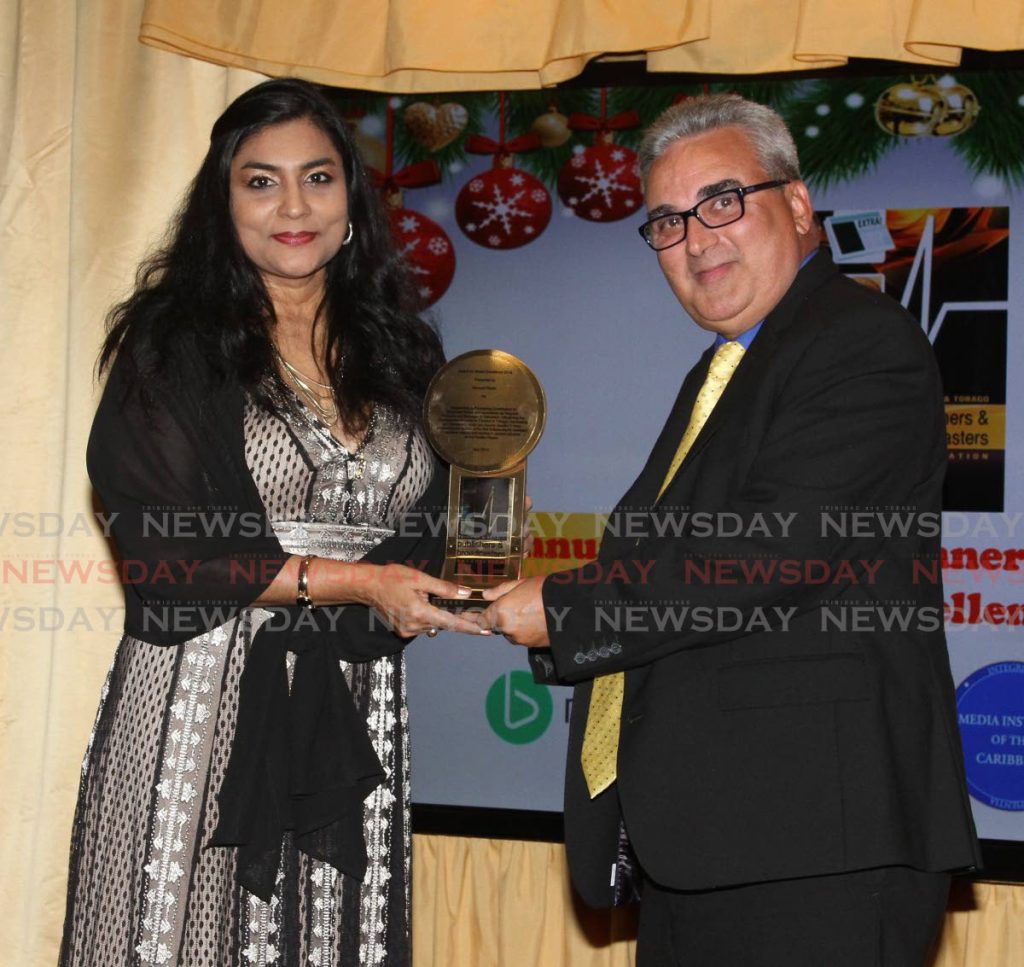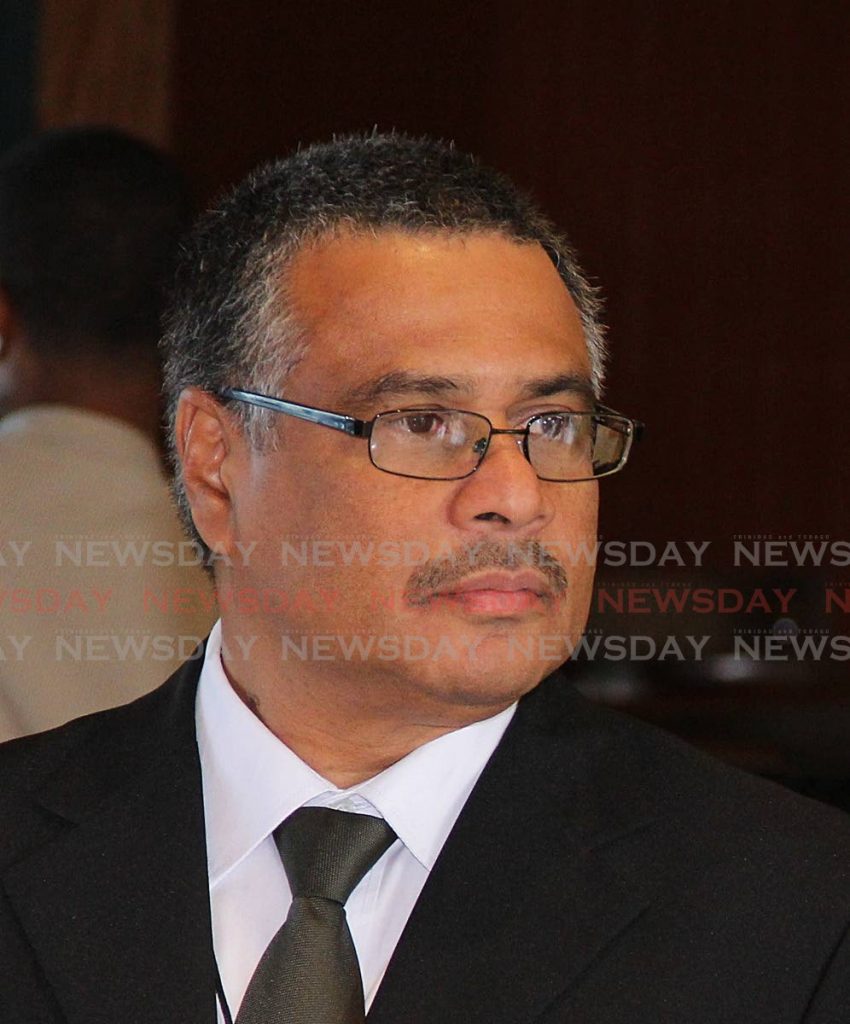Breaking secrecy in the Caribbean

Newsday’s Associate Business Editor CARLA BRIDGLAL was part of the first corps of regional journalists to contribute to the Caribbean Investigative Journalism Network. The platform is an outlet for in-depth analytical reporting covering a range of topics that most impact Caribbean development. She spoke with two of the CIJN’s founders, KIRAN MAHARAJ and WESLEY GIBBINGS about how the platform can transform journalism – and society – in the Caribbean.
THE CARIBBEAN has a culture of secrecy that can make investigative journalism challenging. It’s not that reporters from the region are incapable of the kind of in-depth, analytical, exploratory journalism that audiences have come to expect from the world’s top news agencies but as small islands with small communities where everyone knows everyone else, there’s a real risk of victimisation that has led to a pervasive element of self-censorship among newsrooms in the Caribbean to hold back from the complete and true telling of what is happening in their countries.
The Caribbean Investigative Journalism Network (CIJN) wants to change that. Launched December 5 as an initiative of the Media Institute of the Caribbean (MIC), the CIJN is a digital platform that allows for long-form investigative narratives told using a multimedia format. It’s free, so other news agencies in the region and the world can access and republish thoroughly researched and executed stories from the Caribbean, they just have to credit CIJN and ensure that if the story is edited, that version is cleared with the organisation to ensure clarity and context is maintained and damage to credibility avoided.

Kiran Maharaj is one of the founders of the CIJN. She’s a powerhouse in the regional media landscape, as the president of the MIC, president of the TT Publishers and Broadcasters Association, a director on the TT Chamber of Industry and Commerce – all in addition to her day job as general manager of CL Communications Ltd, a TT-based news and entertainment media company. So, she’s very cognisant of the challenges facing the industry in the Caribbean.
The idea behind CIJN, she told Sunday Newsday, was to encourage a culture of investigative reporting in the region.
“Even if journalists in the region have stories that are worthwhile, there’s the fear of victimisation. We’ve had journalists victimised for reporting, others who have been threatened or their lives threatened, media houses are concerned because advertising revenue might be cut, or they themselves might be victimised (for investigative reporting),” she said.
While the region might, on paper, seem supportive of transparency, with several Caribbean countries respectably ranked on the Reporters Without Border (RSF) Press Freedom Index, and laws like the Access to Information Act in Jamaica and the Freedom of Information Act (FOIA) in TT, it’s not necessarily that there’s press freedom, but because the practice has for so long been to self-censor, the true story doesn’t get out. And for every FOIA, there’s a Cybercrime Bill that can potentially criminalise acts of journalism regardless of its relevance to the public interest.
“For us to start changing and start changing the policies that exist, the legislation, the social infrastructure, there’s no other way to do it if the stories are not exposed. So, MIC in its mandate to produce training, especially for investigative reporting, felt that if we were to form a digital platform where our journalists can be protected – because their by-lines don’t have to be put in – where we work with international agencies who help us collate and corroborate information and through the MIC, the journalists are trained, then we would have something that is meaningful to the region,” Maharaj said.
It will also help raise awareness of the region. “Nobody really reports on the Caribbean. If you look at the media that our population is exposed to (it’s mostly international). Large international media entities don’t really have the facilities, the resources or even the interest in doing regional reporting from the Caribbean on stories, so that’s why we wanted to form the CIJN,” Maharaj said.
The organisation is led by a group of veteran journalists and trainers and there’s also a mentorship element as well. “What we are really doing is not just creating the culture of reporting, but we are training and developing the expertise of our journalists because we want to ensure they are able to keep up with the times. And nobody will be able to tell a story about the Caribbean better than someone from the Caribbean,” she added.

Wesley Gibbings is one of those veteran journalists who works to guide the mission of the CIJN. He has had a storied career throughout the region, and is a prominent voice advocating from press freedom in the region, including as the founder and an executive member of the Association of Caribbean Media Workers. He’s also one the MIC’s vice-president and a co-founder of the CIJN. As part of his advocacy he’s long worked to create that medium for independent reporting.
“What is distinctive about this effort is that it was led by journalists for journalists and has been relatively untouched by partisan elements and commercial elements so it represents in the context of the Caribbean the kind of model we need to ensure there is independent reporting on important issues,” he told Sunday Newsday.
Like Maharaj, he noted the difficulty in small societies to dislodge professional journalism from a context in which commercial and political interests are very strong and very pervasive. “So, it is important that a platform exists outside of the quite legitimate activities of mainstream media to sustain independent journalism,” he said.
The CIJN, then, provides a very important alternative platform that is regional in nature and provides professional space for journalists who would otherwise have operated in limiting environments. “Even as journalists we can’t escape our social and cultural context, which are subject to this culture of secrecy. And this is reinforced by official systems that veer in the direction increasingly of protecting and keeping information hidden rather than exposing it,” Gibbings said.
CIJN, he added, establishes an independent space to encourage journalists to more fearlessly approach their subjects by proving a kind of institutional barrier to interference. “I think it is a positive development,” he said.
The model for CIJN is very important to maintaining that independent distinction. The organisation is the first in non-profit media organisation in the region. It is funded through grants and soon will allow for donations from private citizens and corporate elements. Maharaj was adamant that the CIJN would not seek any financial assistance from Caribbean governments, given the nature of the investigative work the organisation hopes to pursue. It will also remain free from advertising.
CIJN’s biggest challenge, she noted, will be ensuring sustainable funding, but it’s something the organisation has already been working on.
“Word of mouth endorsement is also very important because we have to build our audience. The best way the public can help is not just by reading our stories but by sharing our link (and supporting the organisation’s work).” All contributions will be listed on the website to maintain transparency. And, probably most important, since it is a non-profit organisation, it does not directly compete with established for-profit media houses, who have welcomed the organisation.
The CIJN is also a member of the Global Investigative Journalism Network (GIJN). “GIJN has a very rigorous process for becoming a member. We were turned down initially when we (via the MIC) applied to be part because they weren’t sure if we would last and they questioned our credibility, or if this was something the Caribbean really needs,” Maharaj said. But the MIC team persevered and when the CIJN was finally approved, the GIJN offered advice on setting up, including the process of registering as a non-profit news entity.
“The good thing about being part of GIJN is there is an exchange of info and expertise. They also now promote CIJN so their members can also pick up our stories,” Maharaj said. Apart from GIJN, the MIC/CIJN is also a member of the International Press Institute, the oldest press freedom organisation in the world, the Global Forum for Media Development, and Investigative Reporters and Editors of the Institute for Non-Profit News. “Since the launch of CIJN it has been very positive from all of them so we don’t think that CIJN will go into abeyance. We feel we have started something that is really good,” she said.
Visit www.cijn.org for more on the Caribbean Investigative Journalism Network. Read about the team’s coverage of China in the Caribbean in the week’s Business Day, free in Thursday’s Newsday.

Comments
"Breaking secrecy in the Caribbean"